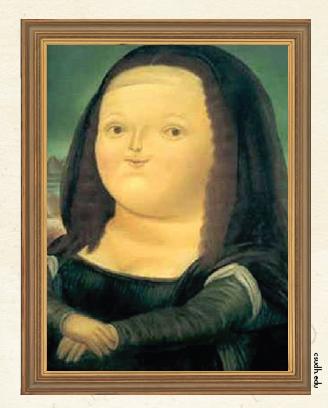After getting off the city hall station, in front of Deoksu Palace, I knitted my face and sighed out unconsciously. Not only steaming hot weather, unexpected passing rain also waited for me there. However, the most shocking scene was the extended line made by people waiting to buy a Botero exhibition ticket. Although the climate was sticky with sweat and people were exposed to passing rain, they weren’t complaining.
All the more, some people seemed to enjoy the time waiting for meeting Botero with composure. In the pouring rain, I thought, “What kind of man is this Botero, who has the power to cut off the deadly high discomfort index all at once?” When I heard the word in Latin, I automatically brought up the image of passion with red hot sun and festivals like Carnival and quick tempo and intense music like the pop of Ricky Martin or Shakira. Especially, concerning Hispanics, I cannot help but think of chocolate skin, and slender and well proportioned bodies like coke bottles. Accordingly, I was hoping Hispanic Artist Botero’s works reflected my stereotype about Latin. In the Latin People section, I thought I could find my ideal Latin people, with chocolate skin and slender bodies.

Actually, before entering the section; I was determined to yield completely to the Hispanics’ fascinating sexy gaze. However, when I entered the section, it was tangled with plump uncles and madams. Even so, in the portraits, the Hispanics’ facial expressions displayed a solemn air. They set their mouths firmly and their eyes are abrupt. Their eyes were vacant and quite different from seductive. My fantasy, charmed with Hispanic, vanished at one stroke. At the center of the exhibition, I felt just like I was disregarded and received a cold reception. “Why you are not fascinated with me? Am I unglamorous? Where are the passionate Hispanics? Was it fiction which I heard and thought about the Latin culture?”
At that time, a catchphrase hit me, ‘Dynamic Korea.’ When I heard that Korean facial expressions look too stiff from foreigners’ points of view, I observed Korean’s faces at a cafe casually. Indeed, people’s facial expressions were too stiff and they seemed to beat other people when others touched them by mistake. This was bad enough, but my facial expression was also too wooden as if all of my facial nerves were malfunctioning.
Dynamic Korea, all the people go out in the street and dye the street red joyfully in the World Cup game, always saying ‘hurry, hurry,’ and sometimes numerous people gather in the street with candlelight to demonstrate and fight against the system. In a foreigner’s view, it may be the most suitable word. However, despite these dynamic national characteristics, their expressions are too still, stiff, and firm. It will be correct to say that Korean and Latin resemble each other. This stiffness in human faces may reflect accumulated painful history, the colonial period. On this point, the picture of Botero was not only Latin people, but the inside of Latin history. However, queerly, the people in the pictures never brought spectators down or depressed them.
All the more, the pictures promoted curiosity and amusement with their soft and mild color and ample description for the objects. Actually, still lifes were more strong and impressive at first in Botero’s exhibition. Instrument, the work of Botero, shocked me. It was only still life, not depicting a shocking scene, but it seemed to step up to me cubically. The table cloth always appears in his still life. If he draws the edge of a table cloth, disheveled and dangling from a table, it leads into another world. In that manner, Botero’s still life gave me an impression as if it were a door into the new world.
However, after the exhibition, as time goes by, every time I think of the name Botero, his expressionless Latin people hang around in my mind. That’s why the picture he painted was not simply Latin people, but Latin history and spirit. Suddenly it felt afresh, although every one has the same frame, two eyes, one nose and mouth, the face communicates not only each person’s existence or identity but the person’s national or regional history. Thanks to Botero, I realized responsibility not only to manage my existing expression but also how to hand facial expression over to a new generation originated in my existence.




